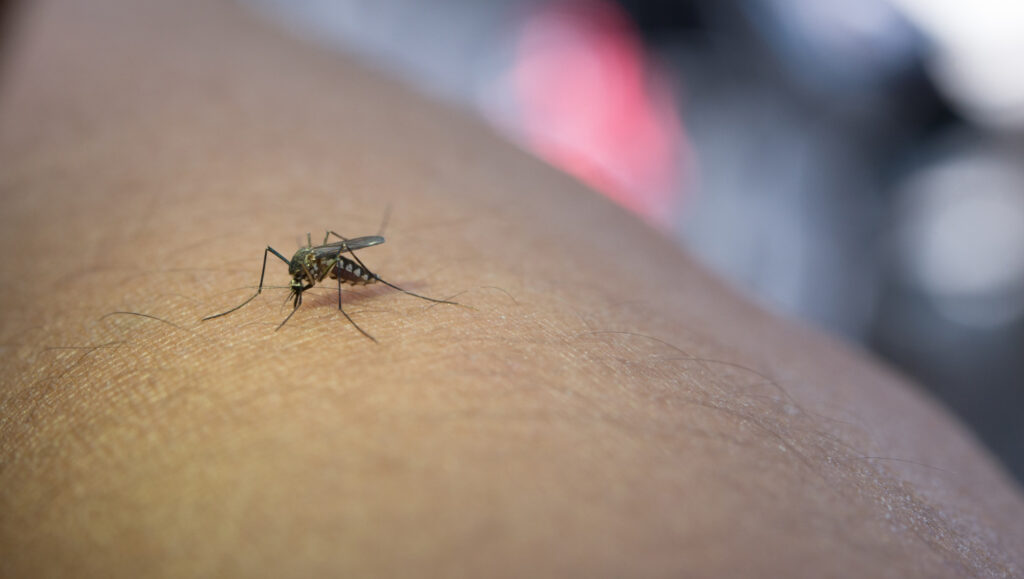
In this article
Dengue fever is a viral infection transmitted by mosquito bites, specifically from the Aedes species. This virus poses a risk to over half of the world’s population, including those living in hot, humid climates like parts of the United States, particularly from August to November.
Symptoms of Dengue Fever
Many cases of dengue fever are either asymptomatic or mild. However, symptoms can include:
- High fever
- Severe headache
- Body aches
- Nausea
- Rash
Severe cases of dengue fever can be life-threatening and require immediate medical attention. The disease has been a global issue since the 1960s, with annual cases rising from 500,000 to 5 million over the past two decades. Mosquitoes can infect up to 400 million people yearly, with 100 million experiencing symptoms. Since 2010, there have been more than 45,000 cases in the U.S., including infections from domestic mosquitoes and those acquired during travel.
Causes of Dengue Fever
Dengue fever is caused by the dengue virus, which is transmitted to humans through mosquito bites. The mosquitoes first acquire the virus from an infected person and then transmit it to others. Although less common, dengue can also spread from a pregnant person to their child, through blood transfusions, breastfeeding, and organ transplants. It is possible to contract dengue multiple times in one’s life.
Risk Factors
Living in or traveling to hot, humid climates increases the risk of dengue fever. In the U.S., cases have been reported in states like Florida, Hawaii, Texas, Arizona, and California, as well as territories like Puerto Rico, American Samoa, and the U.S. Virgin Islands. Urban areas with crowded living conditions and poor water storage practices also see higher incidences of dengue. Those with a history of dengue, young children, and pregnant individuals are at higher risk for severe dengue.
Diagnosis
Diagnosing dengue fever involves a healthcare provider evaluating symptoms and conducting blood tests to rule out other illnesses. Two main types of blood tests are used: antibody tests, which check for proteins that fight the virus, and molecular tests, like PCR, which look for the virus’s genetic material.
Treatment
There is no specific medication for dengue fever. Treatment focuses on relieving symptoms and preventing complications. Most people recover at home with rest, hydration, and acetaminophen to reduce fever and pain. Avoid aspirin and NSAIDs like ibuprofen, as they can increase the risk of bleeding. Severe cases may require hospitalization for intravenous fluids and close monitoring.
Prevention
Preventing dengue involves avoiding mosquito bites and controlling mosquito populations. Measures include:
- Avoiding outdoor activities during peak mosquito activity (dawn and dusk)
- Using mosquito repellents and coils
- Sleeping under mosquito nets
- Wearing protective clothing
- Eliminating standing water where mosquitoes breed
- Using window screens and air conditioning
- Applying larvicides to water containers
A dengue vaccine is available but is only approved for children aged 9-16 who have had dengue before and live in areas where dengue is common, such as Puerto Rico.
Complications
Severe dengue can lead to life-threatening complications like hemorrhage and shock. Warning signs requiring immediate medical attention include:
- Severe abdominal pain
- Persistent vomiting
- Bleeding gums or nose
- Vomiting blood or blood in stool
- Rapid or difficult breathing
- Fatigue or restlessness
- Pale, cold skin
- Severe headache or dizziness
- Confusion or irritability
- Difficulty waking up
Conclusion
Understanding dengue fever, its symptoms, causes, and prevention methods is crucial, especially for those living in or traveling to high-risk areas. Proper diagnosis and treatment can help manage the disease, while preventive measures can reduce the risk of infection
A Quick Review
Dengue fever, transmitted by Aedes mosquitoes, affects millions annually. Symptoms range from mild fever to severe pain and can lead to life-threatening complications. Preventive measures, like avoiding mosquito bites and eliminating standing water, are crucial. Treatment focuses on symptom relief and hydration
FAQS
What is dengue fever?
Dengue fever is a viral infection caused by the dengue virus and transmitted to humans through the bites of infected Aedes mosquitoes.
What are the symptoms of dengue fever?
Common symptoms include high fever, severe headache, muscle and joint pains, nausea, vomiting, rash, and swollen glands. Severe cases can lead to bleeding, abdominal pain, and difficulty breathing.
How is dengue fever diagnosed?
Dengue fever is diagnosed through blood tests that check for antibodies or genetic material of the virus. Symptoms and travel history are also considered.
What causes dengue fever?
Dengue fever is caused by the dengue virus, which is spread by Aedes mosquitoes. The mosquitoes become infected when they bite someone already carrying the virus.
Who is at higher risk of severe dengue?
People who have had dengue before, young children, pregnant individuals, and those living in or traveling to endemic areas are at higher risk of severe dengue.











